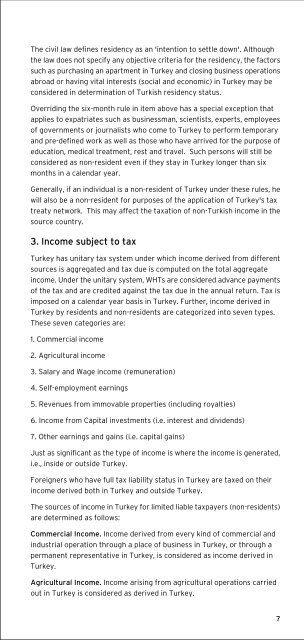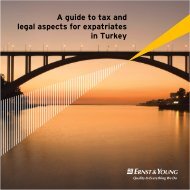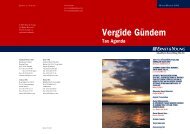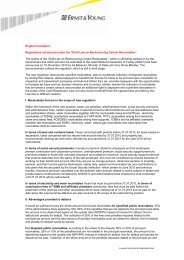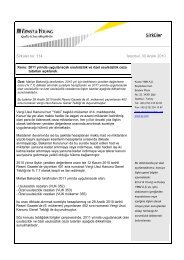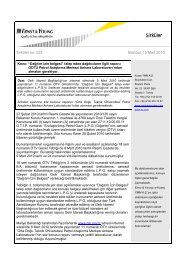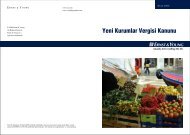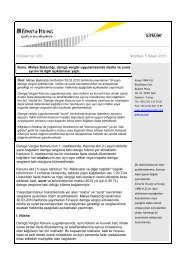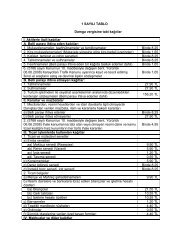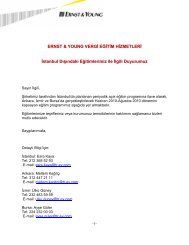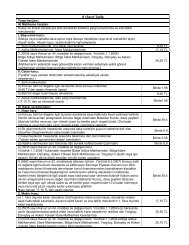Concise tax guide for Turkey 2009
Concise tax guide for Turkey 2009
Concise tax guide for Turkey 2009
You also want an ePaper? Increase the reach of your titles
YUMPU automatically turns print PDFs into web optimized ePapers that Google loves.
The civil law defines residency as an 'intention to settle down'. Althoughthe law does not specify any objective criteria <strong>for</strong> the residency, the factorssuch as purchasing an apartment in <strong>Turkey</strong> and closing business operationsabroad or having vital interests (social and economic) in <strong>Turkey</strong> may beconsidered in determination of Turkish residency status.Overriding the six-month rule in item above has a special exception thatapplies to expatriates such as businessman, scientists, experts, employeesof governments or journalists who come to <strong>Turkey</strong> to per<strong>for</strong>m temporaryand pre-defined work as well as those who have arrived <strong>for</strong> the purpose ofeducation, medical treatment, rest and travel. Such persons will still beconsidered as non-resident even if they stay in <strong>Turkey</strong> longer than sixmonths in a calendar year.Generally, if an individual is a non-resident of <strong>Turkey</strong> under these rules, hewill also be a non-resident <strong>for</strong> purposes of the application of <strong>Turkey</strong>'s <strong>tax</strong>treaty network. This may affect the <strong>tax</strong>ation of non-Turkish income in thesource country.3. Income subject to <strong>tax</strong><strong>Turkey</strong> has unitary <strong>tax</strong> system under which income derived from differentsources is aggregated and <strong>tax</strong> due is computed on the total aggregateincome. Under the unitary system, WHTs are considered advance paymentsof the <strong>tax</strong> and are credited against the <strong>tax</strong> due in the annual return. Tax isimposed on a calendar year basis in <strong>Turkey</strong>. Further, income derived in<strong>Turkey</strong> by residents and non-residents are categorized into seven types.These seven categories are:1. Commercial income2. Agricultural income3. Salary and Wage income (remuneration)4. Self-employment earnings5. Revenues from immovable properties (including royalties)6. Income from Capital investments (i.e. interest and dividends)7. Other earnings and gains (i.e. capital gains)Just as significant as the type of income is where the income is generated,i.e., inside or outside <strong>Turkey</strong>.Foreigners who have full <strong>tax</strong> liability status in <strong>Turkey</strong> are <strong>tax</strong>ed on theirincome derived both in <strong>Turkey</strong> and outside <strong>Turkey</strong>.The sources of income in <strong>Turkey</strong> <strong>for</strong> limited liable <strong>tax</strong>payers (non-residents)are determined as follows:Commercial Income. Income derived from every kind of commercial andindustrial operation through a place of business in <strong>Turkey</strong>, or through apermanent representative in <strong>Turkey</strong>, is considered as income derived in<strong>Turkey</strong>.Agricultural Income. Income arising from agricultural operations carriedout in <strong>Turkey</strong> is considered as derived in <strong>Turkey</strong>.7


